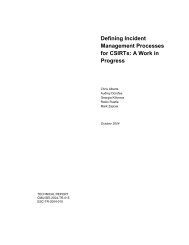The Global Innovation Index 2012
The Global Innovation Index 2012
The Global Innovation Index 2012
You also want an ePaper? Increase the reach of your titles
YUMPU automatically turns print PDFs into web optimized ePapers that Google loves.
110<br />
THE GLOBAL INNOVATION INDEX <strong>2012</strong> 5: <strong>The</strong> Role of Coherent Linkages<br />
Over the past decade, GCC<br />
countries have developed non-oil<br />
sectors. <strong>The</strong> UAE has lowered its<br />
dependence on hydrocarbon exports<br />
and, to a lesser extent, on hydrocarbon<br />
income. Kuwait’s hydrocarbon<br />
export dependence has also<br />
dropped; Oman and Qatar too are<br />
less reliant on hydrocarbons for their<br />
official revenues. Nevertheless, oil<br />
and gas continue to dominate in the<br />
region. Over the period from 1990<br />
to 1999, for example, with the exception<br />
of Bahrain, hydrocarbon revenue<br />
accounted for 80% of revenue<br />
and exports of goods and services in<br />
the GCC. In the following decade<br />
from 2000 to 2009, hydrocarbons<br />
accounted for close to 90% of revenue<br />
and 80% of exports, making the<br />
economies in the region more vulnerable<br />
to external shocks.1<br />
<strong>The</strong>re is ample room for growth<br />
and development of the private sector—the<br />
source of innovation in<br />
developed and emerging economies.<br />
In the past, private businesses faced<br />
challenges that did not position them<br />
to play this role. <strong>The</strong> government<br />
provided generous assistance—such<br />
as subsidized energy—to promote<br />
the private sector with an eye towards<br />
exports. An unintended consequence<br />
was that improvements in<br />
private-sector competitiveness and<br />
productivity stalled. Firms focused<br />
excessively on domestic demand.<br />
<strong>The</strong>y faced limited domestic competition<br />
and no international competition.<br />
Recent changes are starting<br />
to address this legacy. In the meantime,<br />
however, the GCC continues<br />
to depend on imports for numerous<br />
economic activities. Among the sectors<br />
that rely on imported products<br />
are manufacturing, food, chemicals,<br />
and industrial solutions providers.<br />
Saudi Arabia, for example, is among<br />
the top 15 importers of pharmaceuticals<br />
worldwide. <strong>The</strong> UAE is in a<br />
similar position with transportation<br />
services.2<br />
By taking the correct approach,<br />
the GCC economies can leverage<br />
their hydrocarbon endowment to<br />
invest in people and knowledge creation,<br />
and so secure a broader economic<br />
base. Such investments will<br />
enhance the competitiveness of nonoil<br />
sectors while reducing the need<br />
for imported expertise and materials.<br />
Demographics and the engagement of<br />
youth<br />
<strong>The</strong> population of the GCC in coming<br />
decades will continue to be predominantly<br />
young, in contrast to<br />
other high-income countries. By<br />
2030, for example, 42 to 49% of<br />
Saudi Arabia’s population will be<br />
under the age of 30, down from a<br />
remarkable 57% today. By contrast,<br />
55 to 60% of Japanese will be 50 and<br />
older.3<br />
<strong>The</strong>re is a need to harness the<br />
energy and creativity of this youthful<br />
population and direct it towards<br />
entrepreneurship and innovation.<br />
Without such initiatives, the economy<br />
will continue to be highly<br />
dependent on imports. In addition,<br />
the GCC will have to rely<br />
on an increasing number of skilled<br />
expatriates.<br />
<strong>Global</strong>ization<br />
<strong>The</strong> integration of the global economy<br />
will largely benefit those countries<br />
with innovative individuals,<br />
systems, and cultures, and with<br />
favourable conditions for business<br />
operations. <strong>The</strong>se are the countries<br />
that will attract foreign investors and<br />
corporations. <strong>The</strong>y will gain from<br />
investment inflows and corporate<br />
exposure in terms of economic capabilities<br />
and competitiveness.<br />
Foreign investment is particularly<br />
important. Multinational corporations’<br />
investments have been<br />
instrumental in transferring business<br />
and technology expertise. Much<br />
inbound investment in the GCC<br />
is destined for the oil and gas sector.<br />
However, some governments<br />
are providing incentives to attract<br />
funds into other sectors. Such measures<br />
include exemption from customs<br />
duties and flexibility in foreign<br />
ownership of local ventures and<br />
property. <strong>The</strong> result has been a steep<br />
rise in foreign direct investment into<br />
such countries as Saudi Arabia. That<br />
investment is increasingly entering<br />
less traditional sectors such as telecommunications<br />
and finance.<br />
Strengthening innovation linkages in the<br />
Gulf Cooperation Council<br />
GCC countries realize that creating<br />
innovation-led economies<br />
means proceeding in an established<br />
sequence. <strong>The</strong> steps below mainly<br />
describe the successful approaches of<br />
the Republic of Korea; Singapore;<br />
and Taiwan, Province of China.<br />
Following these examples, as well<br />
as those from other developed economies,<br />
GCC states will journey<br />
through the following three major<br />
stages:<br />
1. Economic growth primarily<br />
driven by the relative abundance<br />
and comparative advantage of financial<br />
or human capital.<br />
2. Accumulation of factors of production<br />
(financial and human<br />
capital) that provide higher value-added<br />
in existing products<br />
and services.<br />
3. Additions to the value chain<br />
stemming from new technologies<br />
and ideas that lead to growth<br />
in the production of innovative<br />
products and services.<br />
Some GCC countries already<br />
have begun this journey. <strong>The</strong>y have<br />
opened technology and research<br />
clusters in recent years. <strong>The</strong>se






